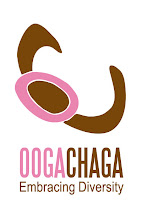Myths and misconceptions about AIDS lead to stigma and discrimination
Instead of humiliation and discrimination, HIV positive people need our understanding, care and support, writes MEERA MURUGESAN
WANT to know the fastest way to clear a crowded room in Malaysia? Tell someone you’re HIV positive.
Since 1986, when the first AIDS case was reported in the country, fear and stigmatization of HIV positive people remains the biggest stumbling block in the fight against the disease.
This is despite the fact that AIDS is no longer the death sentence it once was and that many HIV positive people lead normal lives. The recent breakthrough by German researchers who used a bone marrow transplant to make a HIV positive cancer patient free of the virus also offers hope in the war on AIDS. But the fight to end stigma and discrimination however is still in its infancy.
Many HIV positive individuals still don’t get family support and they face cruel accusations, says Shamsu Yusof, secretary, executive committee of PT Foundation, a community-based organization providing information, education and care services related to HIV/AIDS and sexuality.
“One such young man was told by his aunt to never show up at her house because she believed he would infect her grandchildren,” says Shamsu.
In another case, a man with eight siblings, decided to inform them of his condition when he was hospitalized. Of the eight, only one sister stood by him. He eventually died in hospital. “When those closest to you turn against you, the blow is devastating. Some people are driven to suicide over this.” Shamsu says there are still many who lack an understanding of the disease and are afraid to even sit next to a HIV positive person, share utensils with them. Some believe the disease can be transmitted through mosquito bites. This leads to fear and distrust and these are the main reasons why many HIV positive people keep their condition a secret.
Even those who share their status with employers have faced discrimination although it’s illegal to terminate the services of an HIV positive person. “We know of a manager in the food services industry who was told to leave once he informed his employer about his status.” For women, who account for 8,091 of the 87,710 HIV positive Malaysians (figures in 2009), caring for their children while dealing with the stigma of AIDS is devastating.
Fauziah Lenny Ismail, an outreach worker with PT Foundation’s Positive Living Programme, recalls the case of a housewife in Kuala Lumpur who was infected by her husband. She only found out she was HIV positive after her husband died and she was tested.
The woman, who had previously lived a well-heeled life in a bungalow, was told to leave the house by her in-laws who accused her of infecting their son. They also took control of his assets, forcing her to move into a low-cost flat with her three young children.
The stigma of AIDS even makes access to medication a challenge, especially for people living in close knit rural communities.
“We know of individuals who are reluctant to go to their local hospitals because nurses will recognize them and talk. They’d rather travel hours to Kuala Lumpur just to get their medication,” says Fauziah.
Confidentiality and sensitivity are two crucial concepts in dealing with HIV positive individuals. Government hospitals and clinics should place greater emphasis on these elements, say Raymond Tai, acting executive director of PT Foundation.
From feedback received, Tai says that in some hospitals, health workers couldn’t even direct those who want to be tested, where to go. They are also asked unnecessary questions, sometimes in the presence of others.
“For example, they are asked why they want to get tested when they are not married. That’s not relevant at all.” The judgmental approach of certain doctors and nurses also puts people off from getting tested. For homosexuals, drug users, transgenders and sex workers, a HIV positive diagnosis is a double blow.
They are already judged for who they are and with HIV, they are further stigmatised and don’t get the support and care they need.
Almost 70 per cent of infections in the country are through needle sharing by drug addicts, and men in their 20s accounted for 34 per cent of new infections last year. “There will never be just one face of AIDS. Whatever their background, HIV positive people need our understanding.” Timeline of AIDS 1959: Scientists isolated what was believed to be the earliest known case of the disease. 1978: Gay men in the US and Sweden and heterosexuals in Tanzania and Haiti began showing signs of the disease.
1980: 31 deaths in the US. 1982: The Centre for Disease Control in the US linked the new disease to blood. The term AIDS was used for the first time on July 27.
1983: Scientists at the Pasteur Institute in France discovered the virus that caused AIDS. 1985: The FDA (US) approved the first HIV antibody test. 1987: AZT was the first anti-HIV drug approved by the FDA. 1991: Ten million people worldwide had HIV.
1996: The Haart (Highly Active Antiretroviral Therapy) era began. 1998: 33.4 million HIV positive people worldwide.
2002: Rapid HIV test kit approved by the FDA.
2006: CDC releases revised HIV testing recommendations for health-care settings, recommending routine HIV screening for all aged 13-64 years old.
2008: Francoise Barre-Sinoussi and Luc Montagnier share the Nobel Prize for Medicine for their discovery of the HIV virus.
2010: WHO estimates 5.2 million people were receiving HIV treatment.
Read more: Health: Need for support and understanding http://www.nst.com.my/nst/articles/Health_Needforsupportandunderstanding/Article#ixzz1Ash3KJZg
Subscribe to:
Post Comments (Atom)





No comments:
Post a Comment